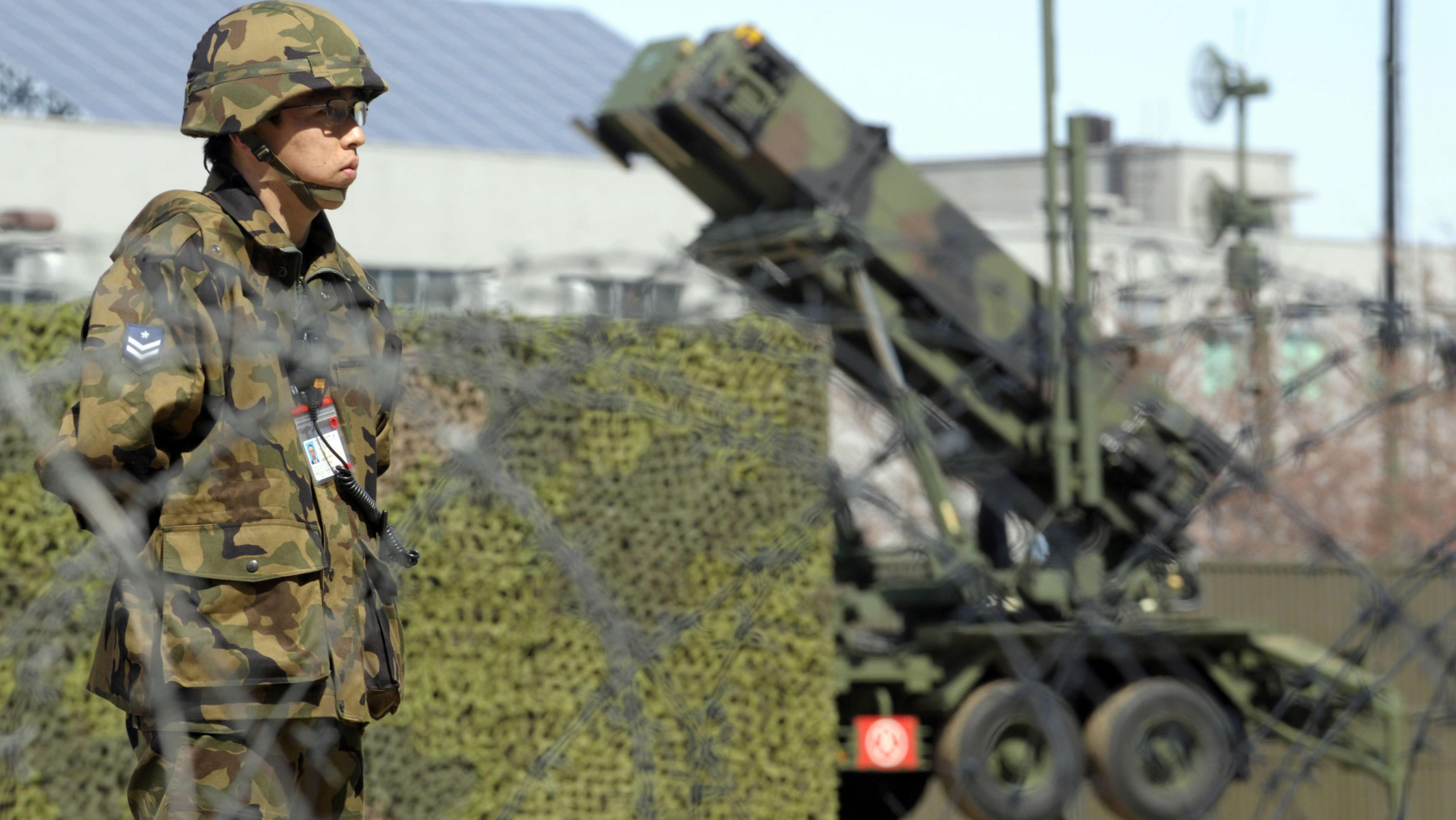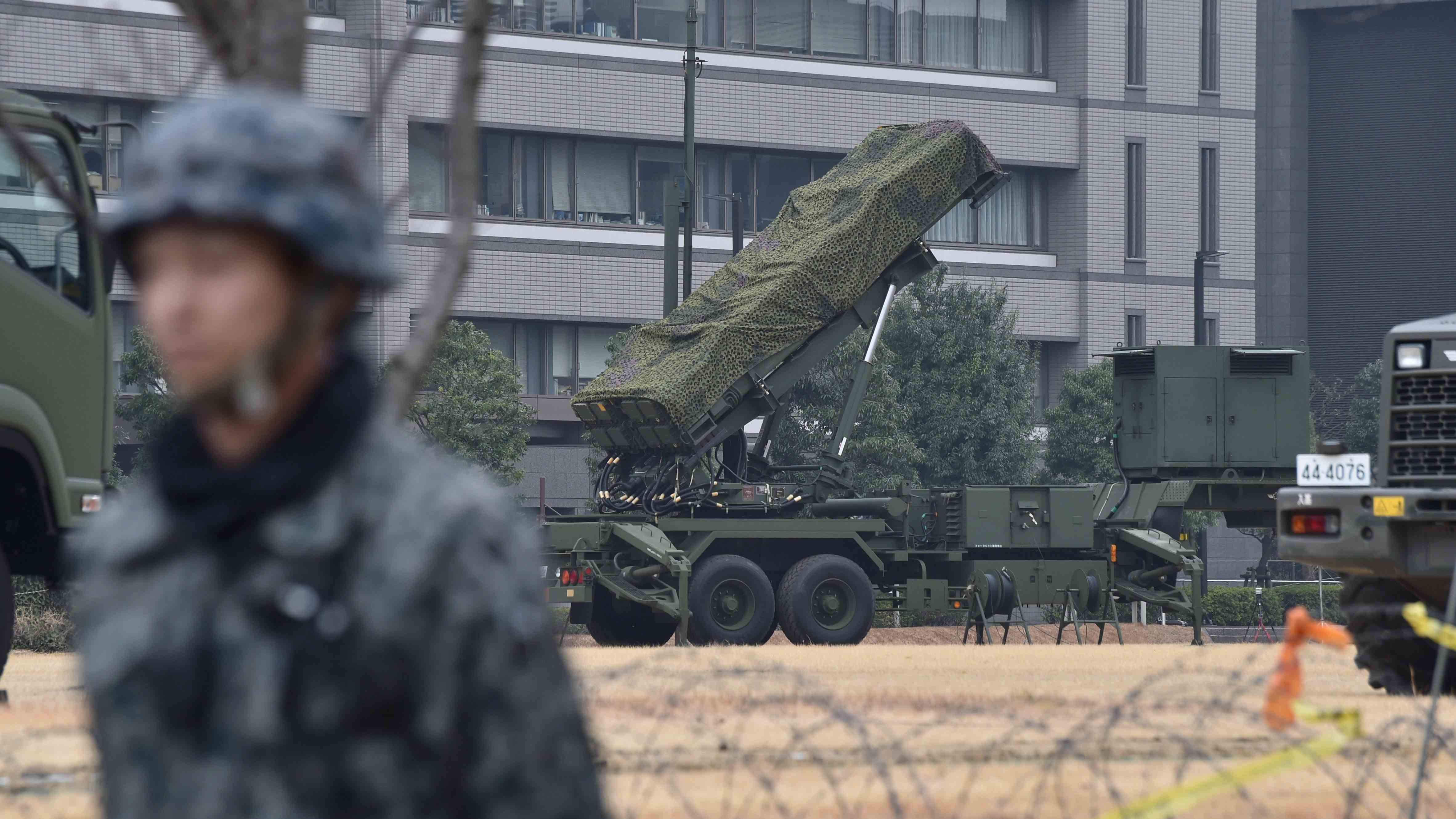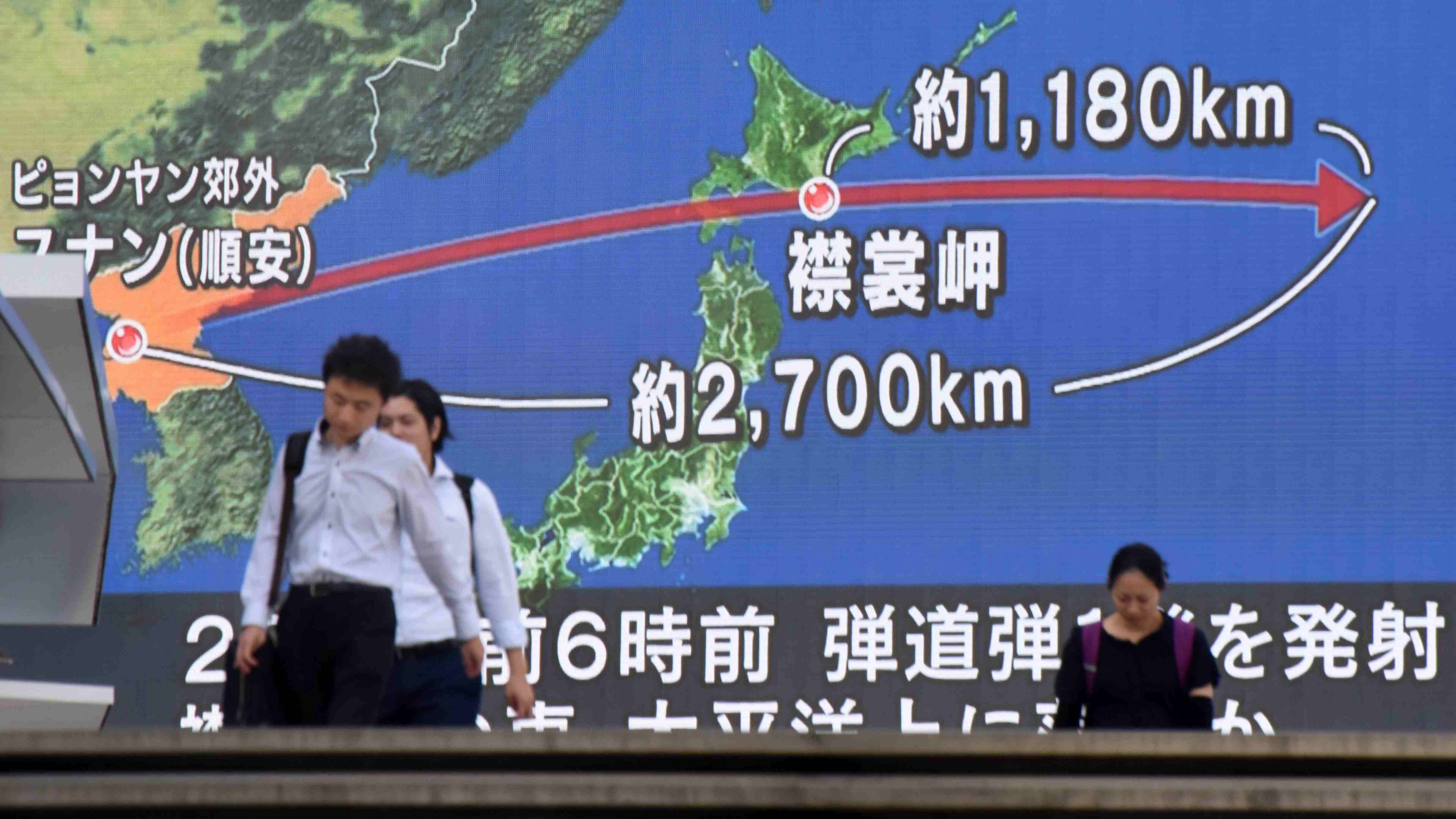
World
16:20, 31-Aug-2017
Japan seeks record military budget to develop new missiles
CGTN

Days after the DPRK launched an intermediate-range missile over northern Japan, the defense ministry in Tokyo has requested 160 million US dollars to develop swift, longer-range missiles of its own as part of a record defense budget proposal.
The proposed rise of 2.5 percent in defense spending to 5.26 trillion yen (48 billion US dollars) for the year starting April 1 would, if approved, mark the sixth straight annual increase in Japan’s military budget under Prime Minister Shinzo Abe.

If approved, the increase in defense spending would be the sixth straight annual rise in Japan’s military budget under Prime Minister Shinzo Abe. /AFP Photo
If approved, the increase in defense spending would be the sixth straight annual rise in Japan’s military budget under Prime Minister Shinzo Abe. /AFP Photo
The funds were requested on Thursday to pay for ballistic missile defense upgrades, six F-35 stealth fighters, four V-22 Osprey tilt rotor troop carriers, besides orders for new naval vessels, including a submarine and two compact warships.
The proposed budget includes what the ministry called “new assets” to defend against a ballistic missile attack by the DPRK, the Japan Times reported, including the land-based anti-missile system known as Aegis Ashore.
The defense ministry has earmarked 47.2 billion yen (43 million US dollars) for interceptor missile SM-3 Block IIA, while 20.5 billion yen (18.5 million US dollars) has been requested for an upgraded version of the Patriot Advanced Capability-3 anti-missile system.

A Japan Self-Defense Forces soldier stands guard near a PAC-3 surface-to-air missile launcher unit in Tokyo on March 6, 2017. /AFP Photo
A Japan Self-Defense Forces soldier stands guard near a PAC-3 surface-to-air missile launcher unit in Tokyo on March 6, 2017. /AFP Photo
Around 90 million US dollars of the requested missile development funds of 160 million US dollars will go on studying hypersonic missiles to quickly penetrate enemy defenses.
The funding for missile development could spark controversy, since Japan's pacifist post-war constitution imposes restrictions on strike weapons for the military.
Some lawmakers of the ruling Liberal Democratic Party argue that Japan needs weapons able to strike DPRK missile sites, so as to deter attacks by Pyongyang.

Pedestrians walk in front of a huge screen displaying a map of Japan (R) and the Korean Peninsula, in Tokyo on August 29, 2017, following a DPRK missile test that passed over Japan. /AFP Photo
Pedestrians walk in front of a huge screen displaying a map of Japan (R) and the Korean Peninsula, in Tokyo on August 29, 2017, following a DPRK missile test that passed over Japan. /AFP Photo
The longest range missiles in Japan's arsenal, which includes anti-aircraft and anti-ship munitions, have ranges of less than 300km.
But such a proposed shift in military strategy would face stiff political opposition from critics in Japan who say Abe's hawkish policies have gone too far.
The proposed defense budget will face scrutiny by Ministry of Finance officials who may seek to rein in military outlays as they juggle demands for higher spending on health and welfare for Japan's ageing population.
2105km
Source(s): Reuters

SITEMAP
Copyright © 2018 CGTN. Beijing ICP prepared NO.16065310-3
Copyright © 2018 CGTN. Beijing ICP prepared NO.16065310-3